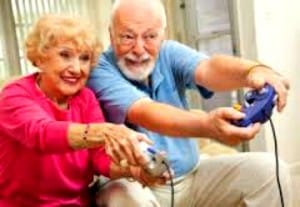
The researchers designed a therapy system using the Nintendo Wii, a video game console that uses remote-like controllers to track movement. The participants, stroke survivors from five of Britain’s National Health Service sites, completed three trials with the adapted Wii games. The adapted games asked participants to imitate an on-screen avatar’s shoulder, elbow, and forearm movements. The participants also played games like air hockey. While they played, the researchers recorded their movements and a physiotherapist remotely monitored their progress. The physiotherapist could give advice and customize the game based on a player’s performance.
The game improved the participants’ arm movements. The participants demonstrated a three-fold increase in their ability to pick up and put pegs in holes. After the therapy, one participant was able to lift and drain a cooking pan for the first time in 11 years.
This study could lead to personalized interventions for people disabled by strokes. Therapies like these are promising because it is possible for people to practice their skills in their own homes and improve at their own pace.
Study leader Dr. Emmanuel Tsekleves explained that the therapy could help motivate stroke survivors to continue with therapy. “The innovative use of the Nintendo Wii could present a way to enhance community based stroke rehabilitation of the arm by providing a motivating and cost-effective way of exercising that could be remotely monitored and exercises adjusted as required by a physiotherapist.”
This research is published in the journal Disability and Rehabilitation.
Previous news in stroke:



 © 2026 Unyte Health US Inc.
© 2026 Unyte Health US Inc.